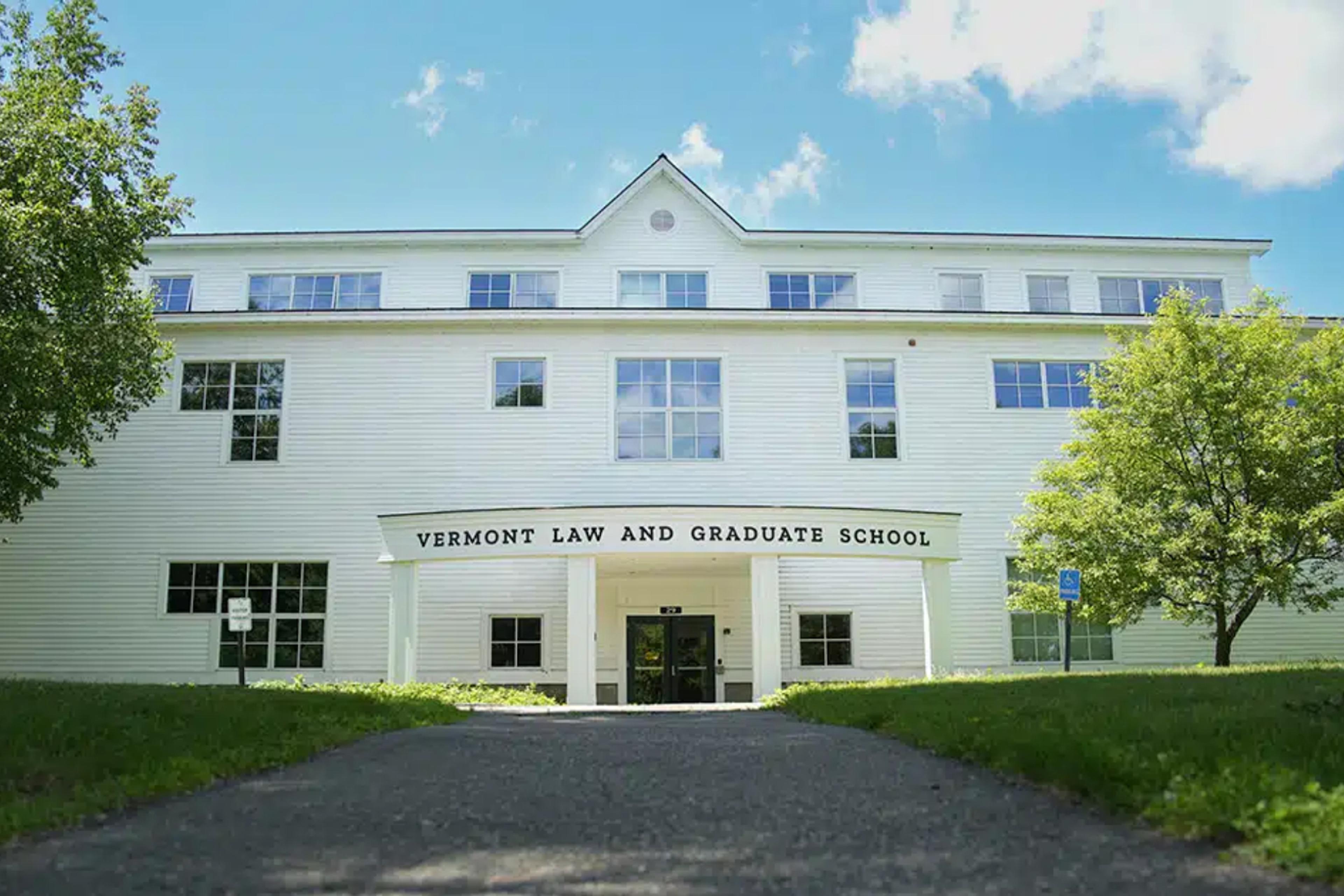Top 10 SJD & JSD Programs in the US (2025)
Discover the best Doctor of Juridical Science (SJD) or Doctor of the Science of Law (JSD) programs with our comprehensive list of the top 10 programs.
Posted March 6, 2025

Table of Contents
Free Event

Featuring Indrani S.
Law School App Office Hours with a Former Stanford AdCom Member
Starting Thursday, April 17
11:30 PM UTC · 45 minutes

Featuring Indrani S.
The SJD (Doctor of Juridical Science) and JSD (Doctor of the Science of Law) are advanced law degrees awarded by top law schools. These degrees are specifically designed for students who have completed a JD (Juris Doctor) degree and are looking to engage in high-level legal research, contributing original insights to legal scholarship and theory. Both degrees are highly regarded in the legal field and offer students the opportunity to delve into specialized areas of law, such as international law, legal theory, and the science of law.
These programs are aimed at prospective students who are looking to further their legal careers, whether in academia, policy-making, or other high-level research roles. While both the SJD and JSD degrees have a similar purpose, they differ in their focus and structure. Choosing the right program is essential, as it will influence your future career path and research opportunities.
What is an SJD Program?
The SJD degree is an advanced law degree and legal research program designed for students who wish to specialize in legal scholarship and contribute to the development of legal theory. The primary focus of an SJD program is the creation of a dissertation that addresses a significant issue within the field of law. This research often involves international law, legal theory, or other advanced areas of juridical science.
An SJD degree prepares graduates for careers in academia, policy-making, and high-level legal research. Graduates are expected to produce original research that makes a significant contribution to legal scholarship, influencing legal practice and theory.
Typical Career Paths for SJD Graduates:
- Teaching law at universities
- Conducting high-level legal research
- Contributing to policy development
- Holding leadership positions in legal institutions and organizations
What is a JSD Program?
The JSD program is similar to the SJD but with a stronger emphasis on the science of law and its practical applications. Like the SJD, students in a JSD program are expected to engage in original research that contributes new knowledge to legal theory and practice. However, JSD students often focus on the theoretical foundations of law and its application to contemporary legal challenges. The JSD program is part of the broader graduate school environment, offering comprehensive academic support and opportunities for methodological training.
JSD graduates typically pursue careers in academia, legal publishing, or legal research. The JSD program is ideal for students interested in making contributions to the science of law and legal theory, with an emphasis on policy implications and practical applications.
Typical Career Paths for JSD Graduates:
- Legal research and publishing
- Teaching law at academic institutions
- Contributing to policy and legal reforms
- Advancing research in international law or legal theory
Key Features of Both Programs
- JD Degree Requirement: To apply, students must hold a JD degree or its equivalent. Additionally, a bachelor's degree is a foundational requirement for entering these graduate-level law programs.
- Research Proposal: A proposed dissertation or study plan is typically required as part of the application process.
- Original Research: Both programs require students to conduct original research that makes a significant contribution to legal scholarship.
- Dissertation: The core requirement for both programs is the submission of a dissertation that addresses a significant legal issue.
- Faculty Mentorship: Students work closely with a committee chair and faculty to guide their research.
- Oral Defense: After completing their dissertation, students must defend their research orally before a committee of legal scholars.
- Duration: Both programs typically take several years to complete, with a strong emphasis on independent research.
How to Choose the Right SJD or JSD Program
Factors to Consider When Choosing a Program
- Program Focus: Consider whether the program’s focus aligns with your research interests, whether in international law, legal theory, or comparative law.
- Faculty Expertise: Look for programs with faculty members who specialize in your area of interest.
- Reputation: The program’s reputation can significantly impact your future career, especially in academia and legal publishing.
- Application Requirements: Ensure that you meet the program’s admission requirements, including the JD degree, research proposal, and academic track record.
- LLM Programs: Explore LLM programs as an option for advanced legal education. These programs allow lawyers to specialize in specific areas of law and are highly competitive, requiring a strong academic background and a clear purpose for pursuing the degree.
Aligning Your Career Goals with the Right Program
- Academia: If you want to teach law and publish legal research, choose a program with strong academic mentorship and a focus on original research.
- Policy & International Law: If you want to influence legal policy or engage with global legal issues, programs with a focus on international law or legal theory may be more suitable.
Typical Application Process
- Application Essays: Personal statements detailing your academic achievements and research interests.
- Research Proposal: A well-defined proposal outlining the dissertation topic.
- Recommendations: Letters of recommendation from legal professionals or professors familiar with your work.
- Timeline: Most programs follow an annual application cycle, typically with deadlines in the fall or winter.
SJD & JSD Program Requirements and Expectations
Degree Requirements and Coursework
- Coursework: While coursework is minimal in both programs, some programs may require a small number of seminars or research methods courses.
- GPA: Applicants are expected to have a strong academic record from their JD degree or equivalent.
- Duration: Both programs typically take several years to complete, with the majority of time spent on dissertation research.
Typical Research and Dissertation Requirements
- Dissertation Proposal: Students must submit a dissertation proposal that outlines the research question and methodology.
- Original Research: The dissertation must involve original research that contributes to legal scholarship.
- Oral Defense: After completing the dissertation, students must defend their work before a committee of faculty members.
Interested in other types of law? Check out:
- The Top 10 Law Schools for Education Law
- The Top 10 Law Schools for Real Estate Law
- The Top 10 Law Schools for Family Law
- Top 10 Environmental Law Schools in the US
- The Top 10 Law Schools for Criminal Law
- The Top 10 Executive JD Programs
- The Top 10 Law Schools for Pharmaceutical and Healthcare Law
- The Top 10 Accelerated JD Programs
- The Top 10 Law Schools for Sports Law
Top SJD Programs and JSD Programs in the US (2025)
Top SJD Programs in the US (2025)
- Harvard Law School
- Yale Law School
- Stanford Law School
- Columbia Law School
- NYU School of Law
Top JSD Programs in the US (2025)
- University of California, Berkeley
- University of Chicago Law School
- Stanford Law School
- University of Virginia School of Law
- NYU School of Law
Top SJD Programs in the US (2025)
Harvard Law School
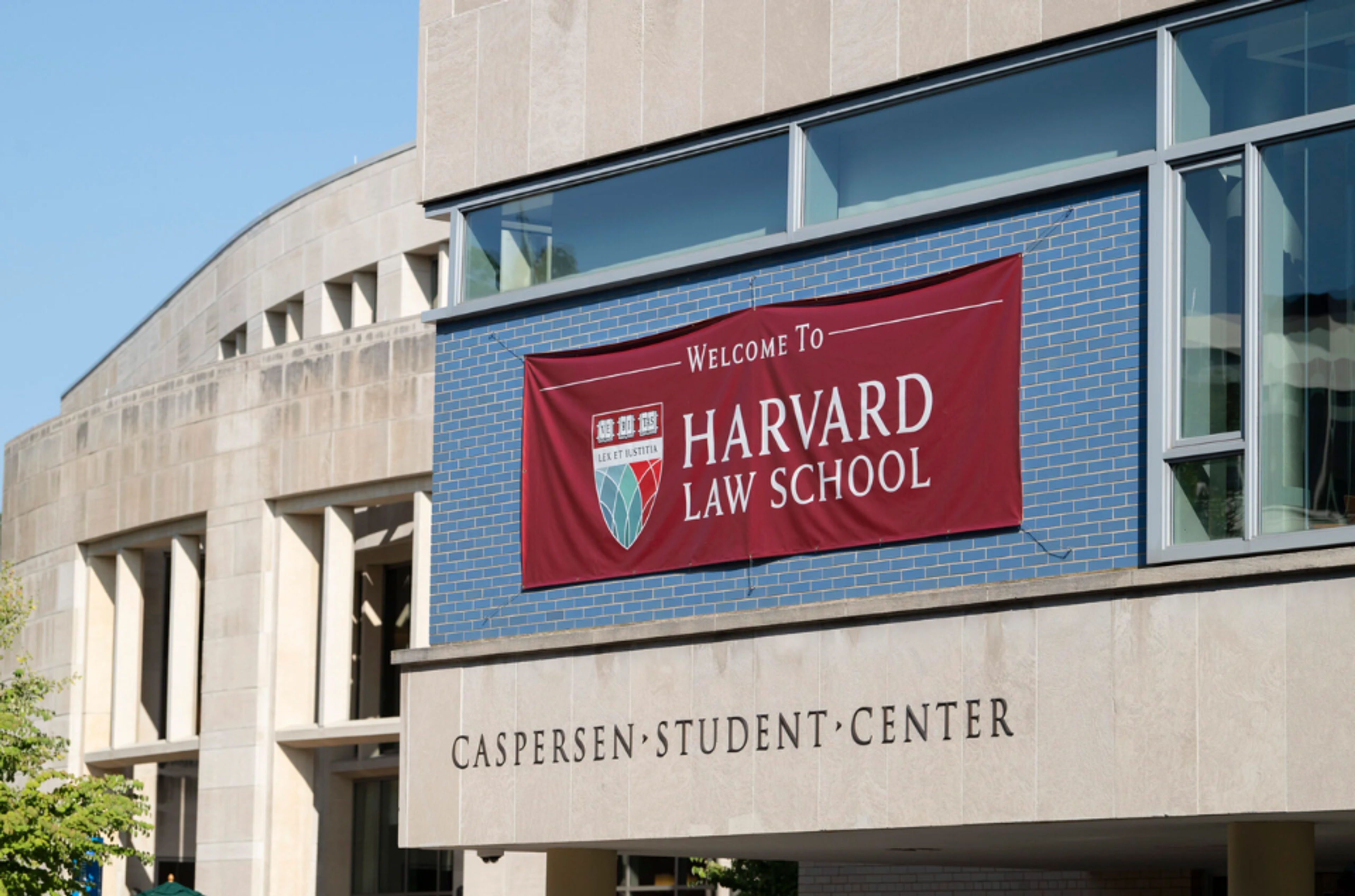
Harvard Law School’s SJD program stands as a beacon of excellence for aspiring legal scholars. Renowned for its groundbreaking research, the program is deeply rooted in international law, comparative legal studies, and the evolution of legal theory. Students are mentored by an exceptional faculty, many of whom are globally recognized experts in their fields. The program’s rigorous structure and vast resources ensure students develop impactful dissertations that shape the future of law. Harvard’s global network and its emphasis on practical applications of legal scholarship make it an unparalleled choice for those aiming to impact both academia and policy.
| Admission Fee | $85 |
| Application Deadlines | April 1, 2025 |
| Duration | 3-5 Years |
| Tuition Fee | $77,100 |
| Graduation Rate | 60 candidates per year |
Key Features:
- Close mentorship from scholars such as Cass Sunstein and Martha Minow
- Access to unparalleled research resources, including the largest academic law library in the world
- Opportunities to present at international conferences and workshops hosted by Harvard
Admissions Requirements:
- Online application form
- Curriculum vitae or Résumé
- Recommendations (at least two)
- Transcripts
- Official TOEFL report (if applicable)
- Personal Statement (no more than 1,000 words)
- Summary of LL.M. Paper (no more than 500 words)
- LL.M. Paper (or the equivalent)
- Research Proposal (no more than 2,500 words)
- Financial aid application (if applicable)
Career Outcomes: Graduates often secure positions as tenured law professors, policy advisors, or leaders in international organizations such as the UN or World Bank.
Read: How to Get Into Harvard Law School (2024-2025)
Yale Law School (SJD Program)
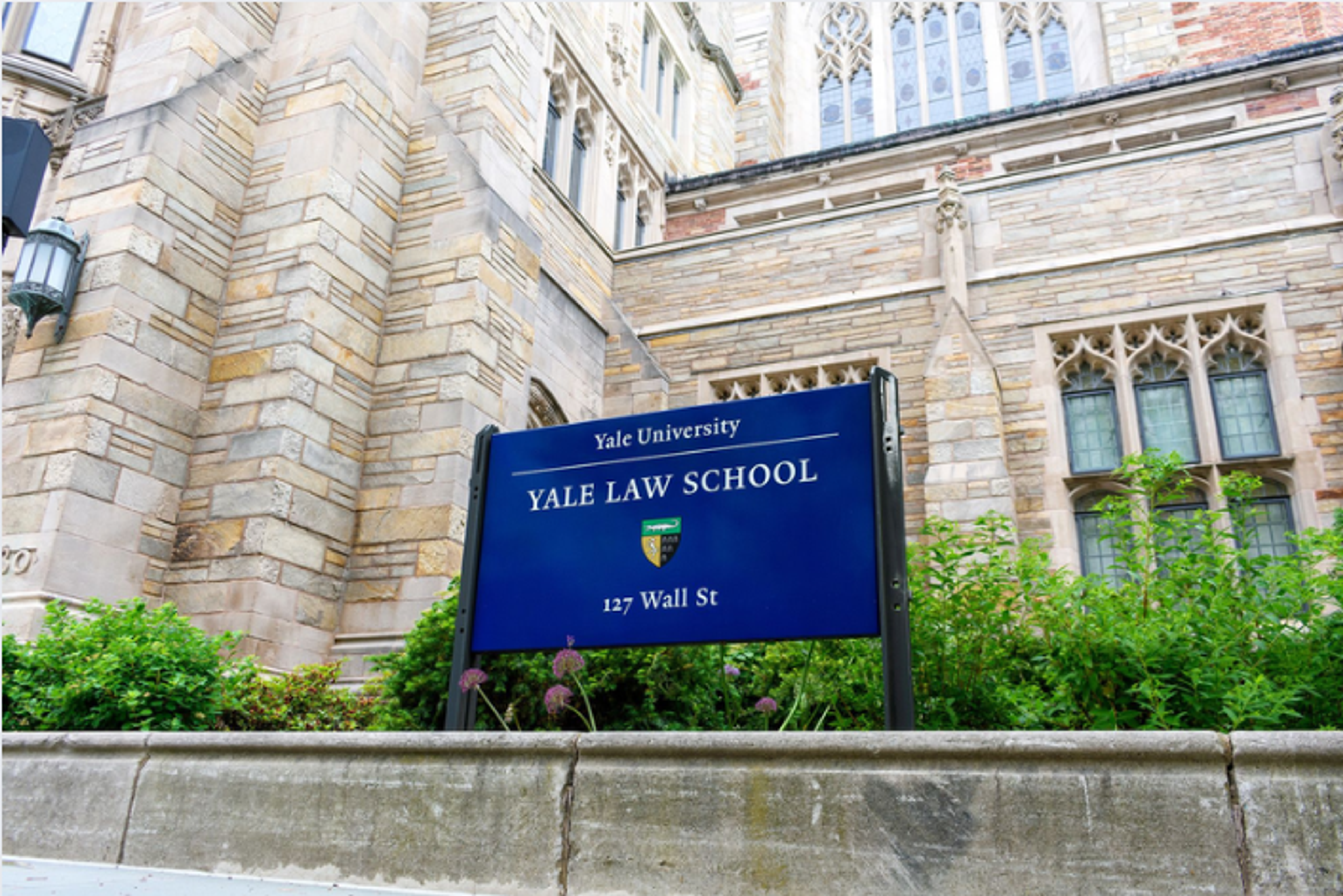
Yale’s SJD program offers an intimate and personalized educational experience tailored for students committed to producing groundbreaking scholarships. Known for its interdisciplinary focus, the program encourages students to integrate insights from philosophy, political science, and economics into their legal research. With a student-to-faculty ratio of 4:1, Yale ensures close collaboration and individualized mentorship. The program’s emphasis on legal theory and philosophy attracts students aiming to challenge and redefine the foundations of law.
| Admission Fee | $85 |
| Application Deadlines | April 1, 2025 |
| Duration | 3-5 Years |
| Tuition Fee | Full-Time (in-state) $73,865, Full-Time (out-state) $73,865 |
| % First-time bar passage | 95.8% |
Key Features:
- Access to the Sterling Law Library, one of the most comprehensive law collections globally
- Encouragement to engage in interdisciplinary studies, including courses at Yale’s renowned graduate schools
- Small cohorts for enhanced collaboration and networking
Admissions Requirements:
- JD degree or equivalent
- A well-defined research proposal
- Strong academic track record and letters of recommendation
Career Outcomes: Yale SJD graduates often hold prestigious academic positions and leadership roles in global NGOs and think tanks.
Read: How to Get Into Yale Law School (2024-2025)
Stanford Law School (SJD Program)

Stanford’s SJD program is a hub for innovation and interdisciplinary research. Situated in Silicon Valley, the program uniquely integrates technology and law, offering students opportunities to explore emerging fields such as artificial intelligence and intellectual property. Stanford fosters a culture of collaboration, enabling students to work closely with faculty and peers across disciplines. Stanford’s proximity to tech giants and its focus on innovative legal research distinguishes it from other programs.
| Admission Fee | $85 |
| Application Deadlines | Early April 2025 |
| Duration | 3-5 Years |
| Tuition Fee | $74,475 |
| % First-time bar passage | 94.4% |
Key Features:
- Research opportunities with institutions like the Stanford Institute for Human-Centered Artificial Intelligence
- Focus on interdisciplinary studies connecting law, economics, and public policy
- Strong emphasis on global legal challenges, including climate change and cybersecurity
Admissions Requirements:
- JD degree and a detailed dissertation proposal
- Proven research aptitude and academic excellence
Career Outcomes: Alumni often lead in academia, international consultancy, and technology-focused legal roles.
Columbia Law School (SJD Program)

Columbia’s SJD program combines rigorous academic training with a vibrant urban setting in New York City, placing students at the crossroads of global legal and policy-making institutions. The program’s emphasis on human rights and international law has made it a top choice for students seeking to influence global legal discourse.
| Admission Fee | $85 |
| Application Deadlines | February 15, 2025 |
| Duration | 3-5 Years |
| Tuition Fee | $81,888 |
| % First-time bar passage | 93.7% |
Key Features:
- Collaboration opportunities with Columbia’s Human Rights Institute
- Access to the United Nations and international NGOs in New York City
- A diverse cohort representing over 20 countries annually
Admissions Requirements:
- JD degree or equivalent
- Comprehensive research proposal
- Evidence of academic excellence and publication potential
Career Outcomes: Columbia SJD graduates secure leadership roles in international organizations and top-tier academic institutions.
Read: How to Get Into Columbia Law School (2024-2025)
NYU School of Law (SJD Program)
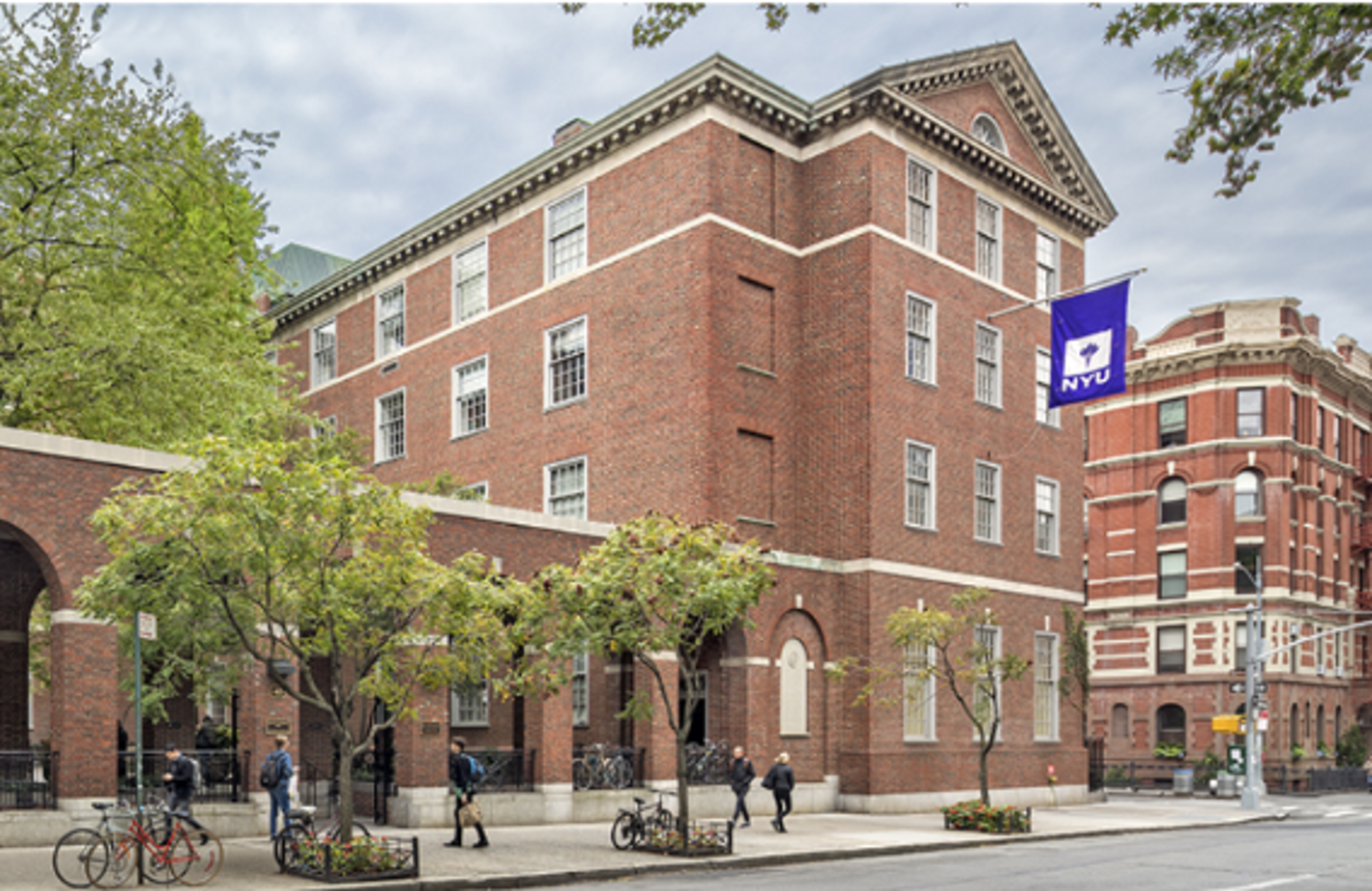
NYU’s SJD program is globally acclaimed for its comprehensive focus on international law and comparative legal studies. Located in the heart of New York City, NYU provides students with unmatched networking opportunities with legal practitioners and scholars worldwide. The program’s commitment to fostering cutting-edge research has made it a preferred choice for aspiring legal scholars.
| Admission Fee | $85 |
| Application Deadlines | February 3, 2025 |
| Duration | 3-5 Years |
| Tuition Fee | $83,254 |
| % First-time bar passage | 94.9% |
Key Features:
- Strong connections with global legal firms and international organizations
- Focus on publishing in leading law journals
- Supportive faculty renowned for their expertise in international and public law
Admissions Requirements:
- JD or LLM degree
- A proposed dissertation and strong academic record
Career Outcomes: Graduates often pursue academic careers, policy leadership roles, or consultancy positions at institutions like the World Trade Organization.
Top JSD Programs in the US (2025)
University of California, Berkeley (JSD Program)
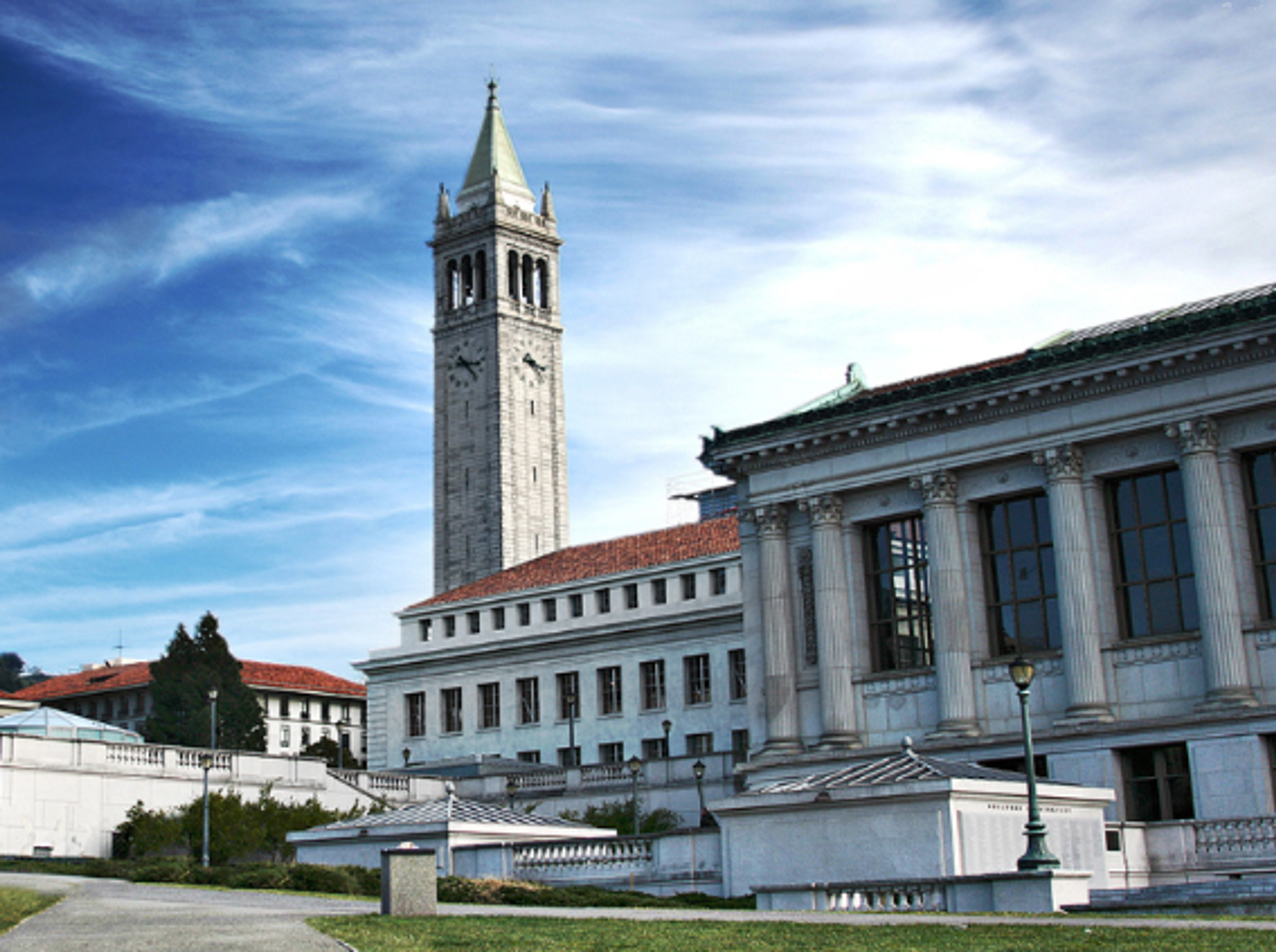
Berkeley’s JSD program emphasizes interdisciplinary legal research and the science of law, making it a premier destination for students interested in addressing global legal challenges. The program encourages critical thinking and innovation while fostering a collaborative academic environment.
| Admission Fee | $75 |
| Application Deadlines | February 1, 2025 |
| Duration | 3 Years |
| Tuition Fee | $63,196 |
| % First-time bar passage | 93.4% |
Key Features:
- Small cohort for personalized research guidance
- Focus on interdisciplinary research, particularly in international and environmental law
- Close faculty mentorship from distinguished professors
Admissions Requirements:
- JD degree or equivalent
- Detailed research proposal and academic credentials
Career Outcomes: Berkeley JSD alumni frequently pursue academic and research roles in universities, think tanks, and governmental agencies.
University of Chicago Law School (JSD Program)

The University of Chicago’s JSD program is renowned for applying legal theory to real-world problems. It integrates law with economics, political theory, and public policy, ensuring graduates develop a well-rounded perspective.
| Admission Fee | $90 |
| Application Deadlines | March 1, 2025 |
| Duration | 3-5 Years |
| Tuition Fee | $77,952 |
| % First-time bar passage | 94.3% |
Key Features:
- Focus on law economics and policy analysis
- Emphasis on interdisciplinary research
- Opportunities to teach and publish research
Admissions Requirements:
- JD degree and a comprehensive dissertation proposal
- Exceptional academic record and research potential
Career Outcomes: Alumni excel in academia, policy analysis, and leadership roles in public and private sectors.
Stanford Law School (JSD Program)
Stanford’s JSD program fosters cutting-edge research in legal theory, policy, and international law. Students are immersed in an intellectually stimulating environment that encourages innovation and collaboration across disciplines.
| Admission Fee | $85 |
| Application Deadlines | February 14, 2025 |
| Duration | 3-5 Years |
| Tuition Fee | $74,475 |
| % First-time bar passage | 94.4% |
Key Features:
- Emphasis on constitutional law, human rights, and international law
- The small cohort for personalized faculty mentorship
- Opportunity to publish research in top law journals
Admissions Requirements:
- JD degree and a detailed dissertation proposal
- Proven research aptitude and academic excellence
Career Outcomes: Graduates lead in academia, high-impact policy-making, and global consultancy roles.
Read: Stanford Law School: Program and Application Overview
University of Virginia School of Law (JSD Program)
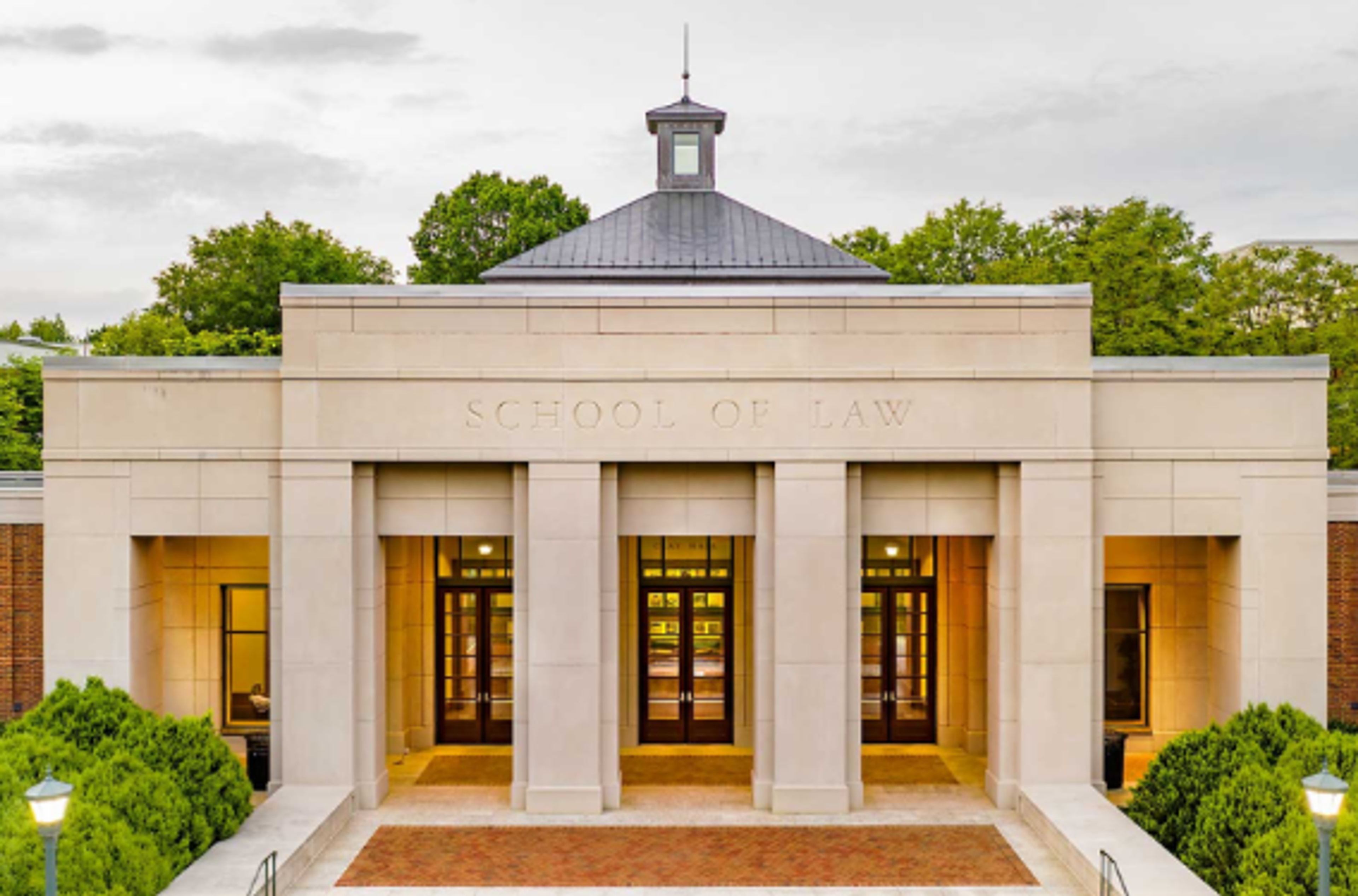
The JSD program at UVA focuses on producing exceptional scholars with a deep understanding of comparative and international law. The program is tailored for students aiming to influence legal scholarship and policymaking on a global scale.
| Admission Fee | $85 |
| Application Deadlines | April 1, 2025 |
| Duration | 5 Years |
| Tuition Fee | $71,200 |
| % First-time bar passage | 77.9% |
Key Features:
- Emphasis on oral defense and academic writing
- Strong support for original research and publishing
- Close faculty collaboration throughout the dissertation process
Admissions Requirements:
- JD degree
- Original research proposal and academic achievements
Career Outcomes: UVA JSD graduates often join academia or work in high-level policy and legal advisory roles.
NYU School of Law (JSD Program)
NYU’s JSD program emphasizes advancing legal theory and international law, providing students with unique opportunities to contribute to cutting-edge legal scholarship. The program’s strong global reputation attracts a diverse and talented cohort.
| Admission Fee | $85 |
| Application Deadlines | February 3, 2025 |
| Duration | 3-5 Years |
| Tuition Fee | $83,254 |
| % First-time bar passage | 94.9% |
Key Features:
- Strong emphasis on international law and comparative law
- Opportunities for publishing and engaging with leading legal scholars
- Focus on the science of law and policy implications
Admissions Requirements:
- JD degree, research proposal, and strong academic background
Career Outcomes: Graduates pursue academic careers, contribute to significant legal reform, and engage in high-level international consultancy.
Final Thoughts
Pursuing an SJD or JSD degree is a significant commitment that opens doors to prestigious careers in academia, legal research, and policy-making. These advanced law degrees provide students with the skills and knowledge needed to make a significant contribution to the legal field. Whether you are looking to teach law, engage in policy work, or pursue legal research, choosing the right program is essential for achieving your career goals.
Work with Law School Admissions Coach
Law School Admissions Coaches can help you perfect your application, from your research proposal to your personal statement. Get expert guidance today to improve your chances of acceptance.
Related Articles
Here are some related articles that can help you navigate the law school admissions process and choose the right advanced law degree program for your goals.
- Early Decision Application Deadlines of the Top Law Schools (2024-2025)
- How to Get Into Law School: Advice from an Expert
- How to Choose a Law School: An Essential Guide for Prospective Students
- Law School Application Deadlines (T20 Programs)
- How Many Law Schools Should You Apply To?
- Top 10 Ways to Prepare for Law School
FAQs
What is the difference between an SJD and a JSD degree?
- Both the SJD (Doctor of Juridical Science) and JSD (Doctor of the Science of Law) are advanced law degrees focused on legal research and scholarship. The primary distinction lies in their emphasis: the SJD program often concentrates on international law and comparative legal studies, while the JSD program places a stronger emphasis on the science of law and its theoretical foundations. Both degrees require the completion of original research and a dissertation.
What are the typical admission requirements for SJD and JSD programs?
- The admission process for both SJD and JSD programs is highly competitive. To be eligible, you typically need a JD degree or its equivalent, but in some cases, an LLM (Master of Laws) degree is also required. The key part of the application is the research proposal: you must submit a detailed study plan or proposed dissertation topic. You’ll also need letters of recommendation from professors or professionals in the legal field who can speak to your academic abilities and potential for original research. If you’re considering applying, we’ll work together to make sure your proposal is compelling and aligned with the program’s focus.
How long does it take to complete an SJD or JSD program?
- From a coach’s perspective, the length of these programs typically spans three to five years. In the first year, you’ll engage in coursework and comprehensive exams, followed by several years dedicated to your dissertation research. Some students might take longer, depending on the complexity of their research topic and how well they work with their committee chair to refine and complete their dissertation. It’s important to stay committed and organized throughout the process to meet milestones on time.
What career opportunities are available for graduates of SJD and JSD programs?
- Graduates of these programs often pursue academic careers—many go on to teach at law schools, engage in legal research, or publish articles in top-tier journals. Additionally, many pursue careers in policy analysis, contributing to legal reform or working with international organizations. The research and writing skills you develop during your time in the program can also open doors to high-level legal positions in both private and public sectors. The key is to focus your research on a significant contribution that can be leveraged in your career.
Are SJD and JSD degrees recognized and valued in the United States?
- In the U.S., the JD degree is considered the standard qualification for practicing law, so SJD and JSD degrees aren’t as common in the legal practice setting. However, these degrees are highly respected in academic circles and in international law. If you’re planning on teaching law, publishing research, or contributing to legal policy, an SJD or JSD can set you apart from other candidates. From a career perspective, these degrees are invaluable if you’re looking to pursue academic roles or advanced legal research globally.
What are the steps to become eligible to practice law in the United States?
- To become eligible to practice law in the United States, individuals must first complete a JD (Juris Doctor) program. After obtaining the JD degree, graduates must pass the bar exam in the state where they wish to practice. Successfully passing the bar exam grants them the license to practice law. This process ensures that attorneys are qualified and meet the necessary legal standards to represent clients and provide legal advice.










